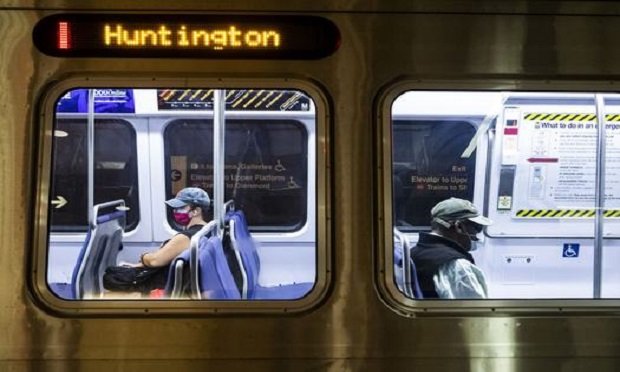 People riding the D.C. Metro wear protective masks to stem the spread of the coronavirus in Washington, D.C. June 6, 2020. (Photo: Diego M. Radzinschi/ALM)
People riding the D.C. Metro wear protective masks to stem the spread of the coronavirus in Washington, D.C. June 6, 2020. (Photo: Diego M. Radzinschi/ALM)
Editor's Note: Here are the latest key updates you may have missed relating to the novel coronavirus (COVID-19) as of June 29, 2020.
|In the U.S.
According to Johns Hopkins University (as of June 29, 2020):
|- Total U.S. cases: 2.56 million
- Total U.S. deaths: 125,927
The CDC added congestion or runny nose, nausea, and diarrhea to its list of coronavirus symptoms. Other symptoms on the agency's list include fever or chills, cough, shortness of breath or difficulty breathing, fatigue, muscle or body aches, headache, new loss of taste or smell and sore throat.
Recommended For You
Want to continue reading?
Become a Free PropertyCasualty360 Digital Reader
Your access to unlimited PropertyCasualty360 content isn’t changing.
Once you are an ALM digital member, you’ll receive:
- Breaking insurance news and analysis, on-site and via our newsletters and custom alerts
- Weekly Insurance Speak podcast featuring exclusive interviews with industry leaders
- Educational webcasts, white papers, and ebooks from industry thought leaders
- Critical converage of the employee benefits and financial advisory markets on our other ALM sites, BenefitsPRO and ThinkAdvisor
Already have an account? Sign In Now
© 2025 ALM Global, LLC, All Rights Reserved. Request academic re-use from www.copyright.com. All other uses, submit a request to [email protected]. For more information visit Asset & Logo Licensing.





